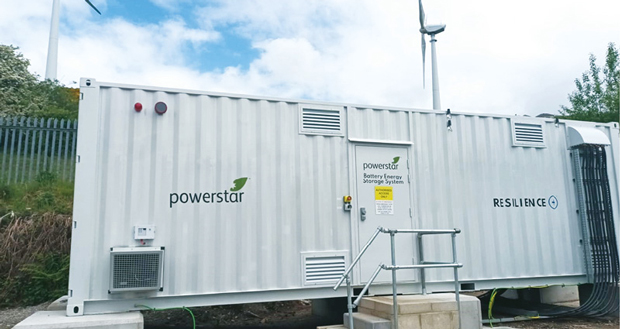RETAIL POWER
For many facilities, energy represents a significant proportion of business costs, and this is particularly true for retail – a sector which aims to achieve Net zero by 2040, a full 10 years before the UK’s country-wide commitment. In part, this 2040 target is driven by consumer pressure, as customers are increasingly aware of purchasing power as a means to affect change. In the current energy crisis, sustainable technology can also help reduce energy spend – addressing two critical aspects of the Trilemma.
For one supermarket chain, with multiple stores and nationwide distribution centres, Powerstar recommended the installation of a BESS, to ensure the UPS demand for temperature-controlled areas, air conditioning, lighting, and 24/7 operating hours. Along with optimised voltage output, this BESS technology has brought about a 31 per cent reduction in energy costs, while also allowing the chain to engage in Grid contracts – an increasingly important source of revenue for businesses, particularly in an energy crisis. BESS offers the capability to store energy – whether purchase from the Grid when prices are lowest to be used at peak times, or energy generated on-site from renewables – generally solar PV or wind. In isolation, solar arrays are inefficient for reliable on-site power generation, potentially producing more energy than required in sunny conditions – meaning wasted energy – and lacking productivity in less clement weather. Combining solar with BESS, however, enables the two technologies to work in tandem – optimising cost benefits from investment in energy management technology.
As renewables make up an increasing part of the UK’s energy mix, the need for businesses that can engage with balancing services continues to grow. A BESS solution allows users to capitalise on the National Grid’s Demand Side Response (DSR) opportunities – providing the storage capacity to draw down electricity form the Grid or to release it back to be available at times of peak demand. When compared to the sunk costs of a traditional UPS asset, this capability to generate a new and guaranteed income means that businesses can not only take greater control over their energy spend but can also determine a clear payback timescale for any BESS investment.
Given the competing demands of the Energy Trilemma, organisations investing in BESS technology are benefitting from resilient and cost-effective power, while also demonstrating a clear commitment to achieving net zero. In the midst of an energy crisis, focusing on battery storage represents both quick commercial wins while working towards longer-term strategic goals.
(i) https://offers.powerstar.com/energy-trilemma-white-paper
(ii) www.worldenergy.org/assets/downloads/World_Energy_Trilemma_Index_2022.pdf
(iii) https://oilprice.com/Energy/Natural-Gas






